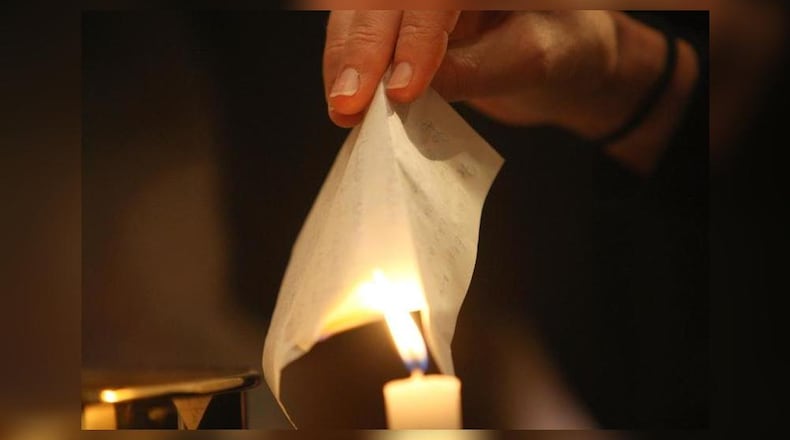On the night of Dec. 31, Thomas Jefferson Byrd, an Atlanta actor and a member of Hillside International Truth Center, will read the entire Emancipation Proclamation.
Congregants will write notes — listing their flaws, habits and attitudes that they want to leave behind going into the new year — then go through a cleansing by setting fire to the notes in a burning bowl and stating their intentions for 2020.
Some call it the New Year’s Eve service. Others refer to it as the Watch Night and associate it with the freeing of slaves more than 150 years ago.
The combined focus on observing spiritual growth for the incoming year and the Jan. 1, 1863 date President Abraham Lincoln issued the Emancipation Proclamation is not lost on Bishop Barbara L. King.
The historic document freed those enslaved people who lived in states that seceded from the union during the Civil War.
Credit: welcomia/Shutterstock
Credit: welcomia/Shutterstock
“This brings it to a whole new level,” said King, who has served as senior pastor of the Atlanta church for 49 years. “Now that the body was released, what about the mind?”
Over time, the Watch Night service, which is observed by many churches across metro Atlanta, has evolved, leaving varied meanings. Or none at all.
The services, which typically start between 7 and 10 p.m. and end at midnight, include a mix of singing and praying, reflecting on the previous year and planning for the one to come.
For some Christians, it’s an alternative to partying the night away.
>> READ | Ways to stay safe while ringing in the New Year
Audriane Jackson, an author and public relations specialist, said she remembers spending every New Year’s Eve on her knees praying.
“How you bring in the New Year is supposed to set the tone for the new year,” she said. “If you end the new year praying you will be blessed.”
A lifelong member of the African Methodist Episcopal Church, Jackson said the pastor would usually mention the Emancipation Proclamation at the beginning of the service but “never made a big deal of it.”
Credit: ccompton@ajc.com
Credit: ccompton@ajc.com
“The observance began in many Black churches 156 years ago,” said Teressa L. Fry Brown, Bandy Professor of Preaching at Emory University’s Candler School of Theology. She added that not all Black denominations or people observe Watch Night. “The reality is that not everyone heard about the Emancipation Proclamation, nor did slaveholders magically free the enslaved at the signing. This is the reason for the subsequent Juneteenth observances.”
Brown added that this night of worship celebrates “historical and existential freedom and acknowledges that waiting, even for freedom, and watching, is a part of our cultural and spiritual history. But this does not mean that waiting was or is easy.”
Indeed, Watch Night services, sometimes referred to as Freedom’s Eve, may not have started in 1862 with anticipation of the signing of the Emancipation Proclamation, but may have actually started much earlier.
“I think that’s a common misconception that has spread through the internet,” said Paul Harvey, a professor of history at the University of Colorado. “The history of Watch Night comes back to at least the 18th century.” He said it likely began with the Moravian churches when members reflected on the past year and prepared for a new one. Parts of the service were later adopted by Methodists “as a symbol of renewing your covenants to God for the new year.”
Bishop Reginald T. Jackson, presiding prelate of the Sixth Episcopal District of the African Methodist Episcopal Church, said the service has been “tremendously important to black churches. Unfortunately, we have not done of very good job of teaching people about the history.”
When is Watch Night service held?
Services are held during the night of Dec. 31.
Do all Christian churches hold Watch Night services?
No, some call them New Year’s Eve services, but that’s often left to individual pastors and congregations.
What is the meaning behind Watch Night services?
Many churches use the occasion to renew their commitment to God in the new year or to symbolically leave old habits and ways behind and to pray for and contemplate a new year. Some African-American churches also mark the Jan. 1 signing of the Emancipation Proclamation.
About the Author
The Latest
Featured






